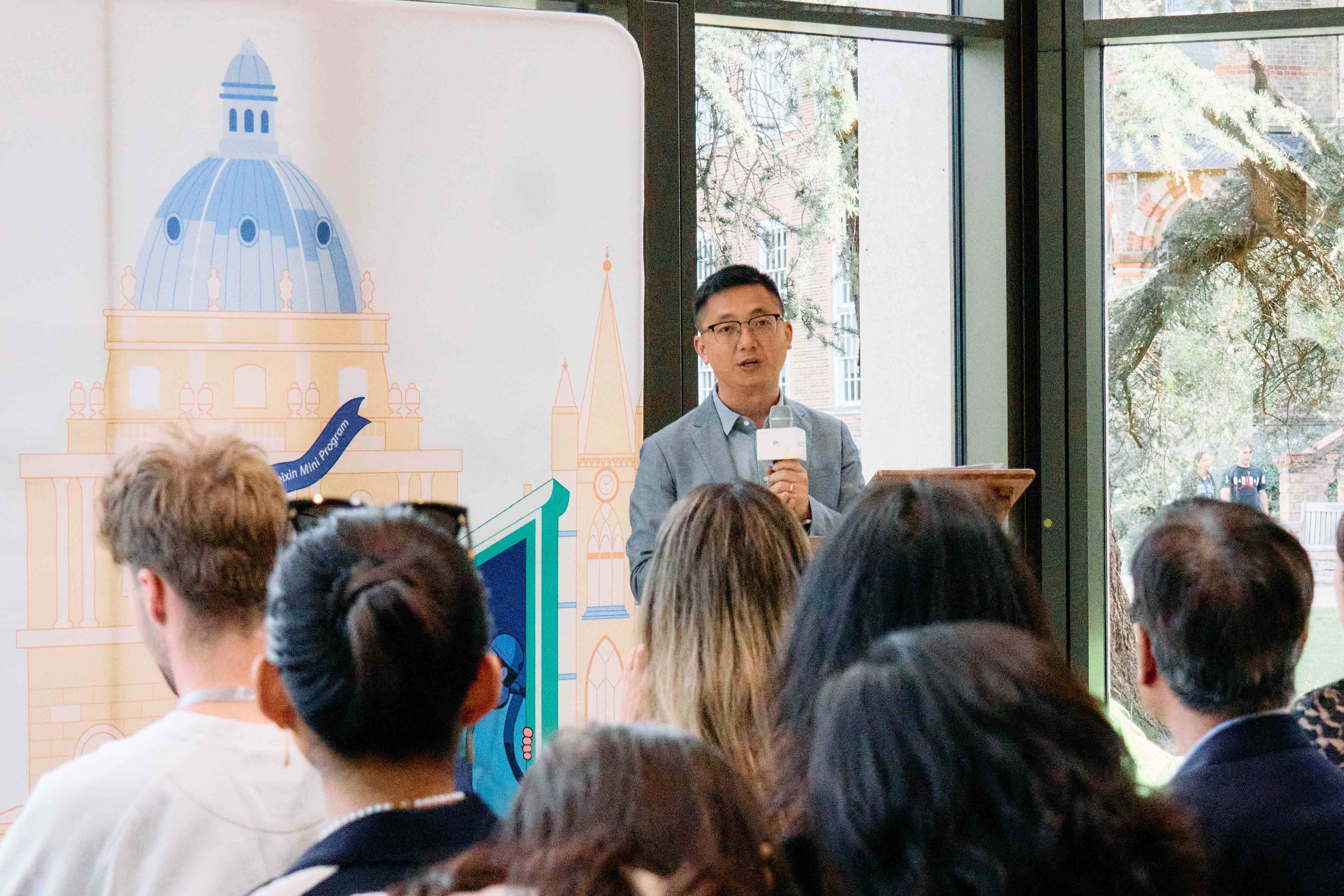




- BRNN
- BRI News
- BRNN News
- Database
Official Documents Polices and Regulations
Inter-government Documents International Cooperation BRI Countries
Business Guide Economic Data BRI Data
Trade
Investment Projects Latest projects
Cases - Content Pool
On Aug. 5, 2025, the 4th Weixin Mini Program Global Innovation Challenge and Global Exploration Program kicked off its "Oxford Summer Camp" at the University of Oxford, Britain, bringing together 25 outstanding Chinese teenagers to explore how tech can bridge cultural and digital gaps.

Participants join the 4th Weixin Mini Program Global Innovation Challenge opening ceremony in Oxford, Britain, Aug. 5, 2025. (Photo/Zhao Wenkai)
At the opening ceremony, Pan Hang, assistant director of the China National Tourist Office in London, encouraged students to use mini programs to create tools that help international travelers navigate payment systems, access information, and feel more at home anywhere in the world.

Pan Hang, assistant director of the China National Tourist Office in London, delivers a speech in Oxford, Britain, Aug. 5, 2025. (Photo/Zhao Wenkai)
This summer, international tourism is experiencing a major rebound, and Chinese travelers are once again leading the charge across Europe and beyond. What's different now? The journey is smoother than ever thanks to homegrown Chinese technology going global.
From popular attractions to local cafés, businesses in over 91 countries and regions have embraced Weixin's mini programs and cross-border payment tools to serve Chinese tourists better. The number of active international mini program service providers has surged by nearly 30 percent over the past year. In key countries and regions, the number of mini programs serving local needs has jumped by 45 percent.
Weixin Pay now supports 31 currencies across 74 countries and regions, helping Chinese travelers make payments abroad just as easily as they do at home, whether booking trains in Italy or buying souvenirs in Britain.
European countries are rapidly upgrading their infrastructure to meet the expectations of Chinese travelers, who have come to rely on mobile payments and AI-powered apps. In fact, a recent survey by the European Travel Commission and Eurail Group found that 72 percent of Chinese respondents plan to visit Europe this summer, a 10 percent increase from last year.
To meet this demand, businesses across the continent, from airlines like Lufthansa and Swiss Air to transport services like FlixBus, Italo, and Eurostar, have launched Weixin mini programs. Travelers can use these apps to check schedules, buy tickets, and navigate their trips in Mandarin with ease.
Even local attractions and museums are getting on board, upgrading their Chinese-language audio guides and offering mobile payment options. And for tourists exploring new cities, Weixin's "mini programs nearby" feature helps them discover trusted local services instantly.
On the other hand, international tourists visiting China often struggle to adapt to the country's mobile-first payment systems. More than language or transportation, it is the widening digital divide that has emerged as one of the greatest barriers for tourists in China.
H-J Colston, director of Engage with China, who has visited the country many times, encouraged young talents to develop new mini programs that can help foreign visitors overcome these entry challenges. "If these mini programs could also help international travelers quickly understand and connect with local Chinese culture that would be even better," she added.

H-J Colston, director of Engage with China, delivers a speech in Oxford, Britain, Aug. 5, 2025. (Photo/Zhao Wenkai)

Tel:86-10-65363107, 86-10-65368220, 86-10-65363106